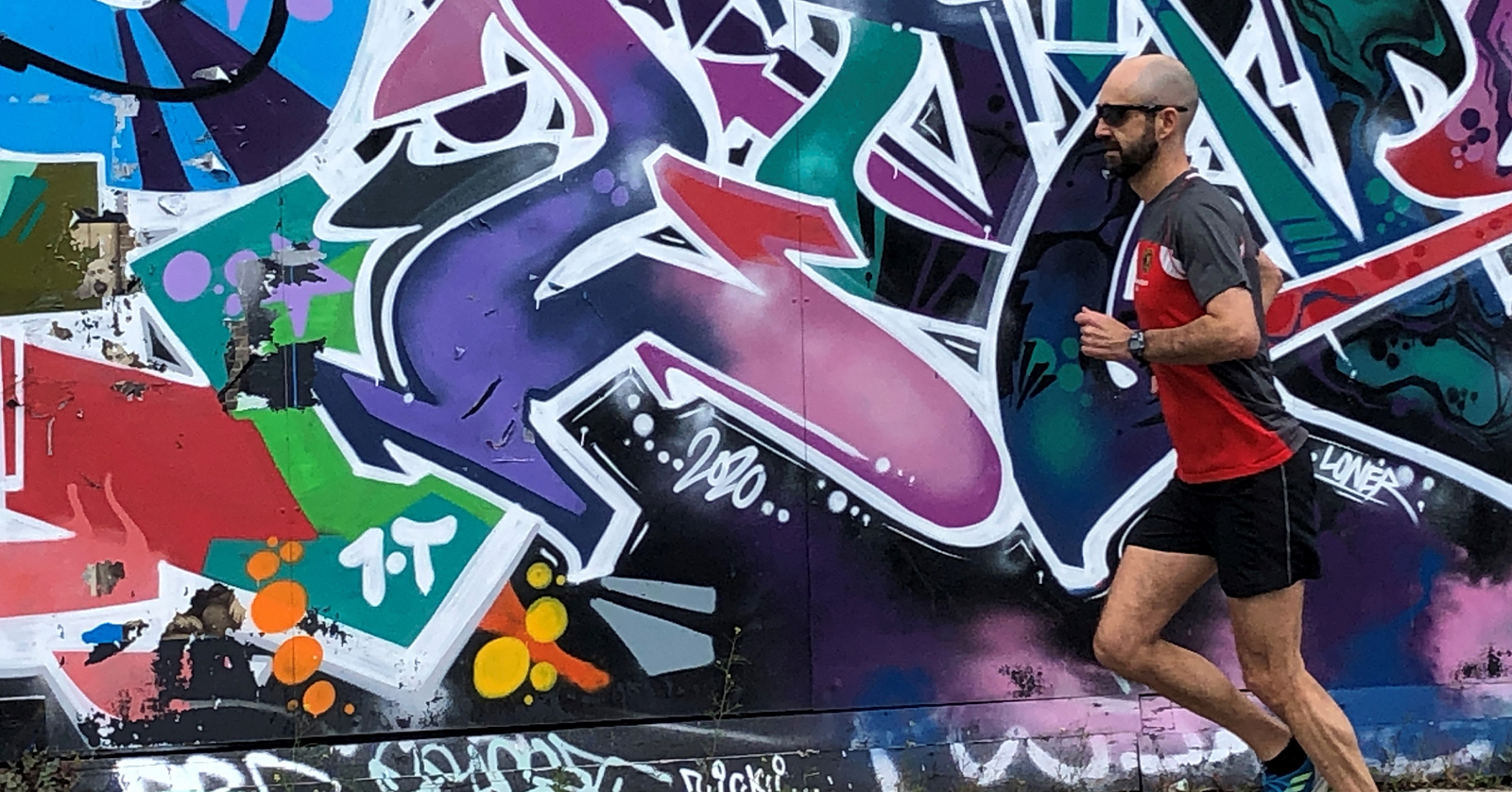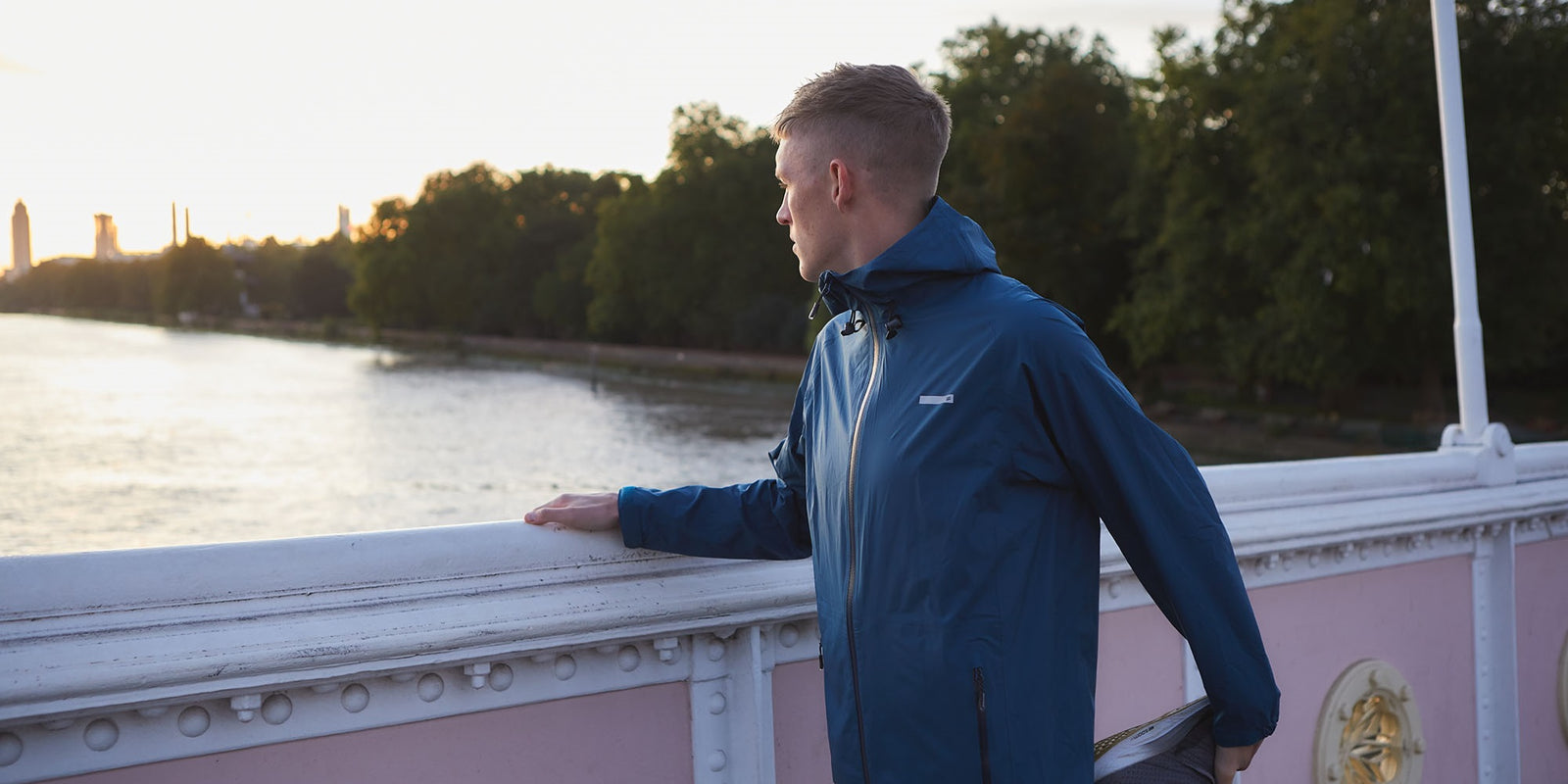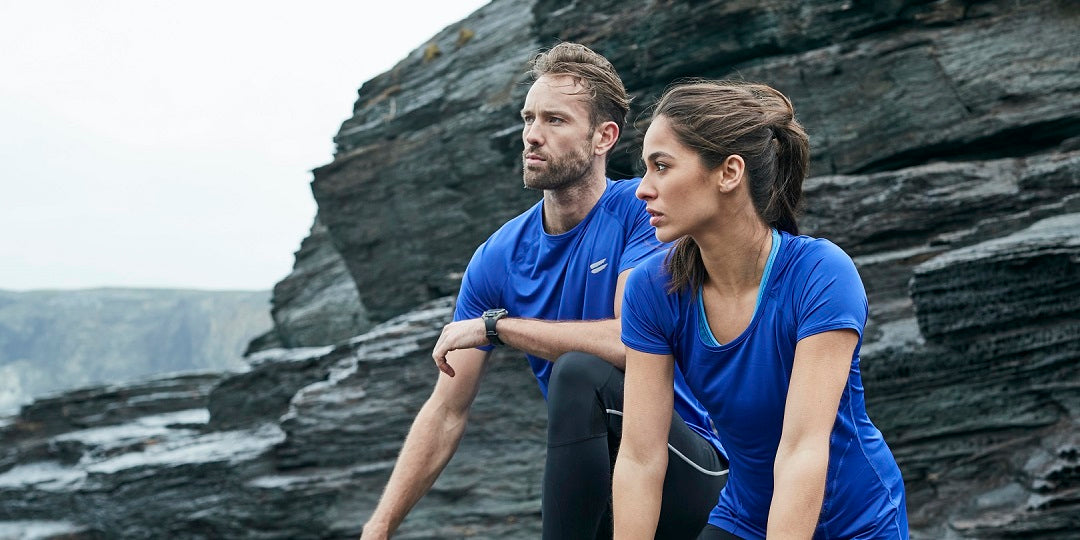‘I believe that runners are optimists. We’ve learned that we can experience extreme difficulty and come out the other side. We know it will be hard, but we also know we have what it takes to find a way through. And this knowledge is relevant not just to racing, but also to life.’ Michael Stocks
It was a dazzling early Autumn morning when the Tribe Sports team caught up with team GB ultra runner Michael Stocks. Having made a name for himself running 24 hour track races, Michael made his debut for the team GB ultra team at the age of 50. Born in South Africa, running wasn’t something he started until he reached his thirties and moved to the UK. ‘I spent my twenties focussing on booze and cigarettes, smoking about 30 cigarettes a day,’ he says: ‘Once I reached 30 I realised that lifestyle clearly wasn’t sustainable and I had to make some changes - and running turned out to be the biggest change of all.’
Starting off with 10k races, it wasn’t long before Michael progressed onto half marathons and then turning his attention to marathons. ‘As a South African, the Comrades Ultra is the only thing that really matters when it comes to running,’ he laughs: ‘It’s a 56 mile ultra, so if you’re just running marathon distances in South Africa, who cares!? People assume you’re running a marathon simply to qualify for the Comrades - so that’s really the general attitude that got me started on ultras.’

After running his first Comrades - ‘An incredible experience,’ he smiles - Michael competed in various other ultras across the UK before completing his first 100 mile race. It was around this time that Michael started thinking about competing for Great Britain. ‘I thought running for England would just be the absolute dream,’ he says: ‘I tried to qualify for over 5 years through my Comrades times, but kept coming up short - I’d almost put the dream to bed.’
The turning point came when he asked for feedback to understand how he could improve and was introduced to the man who would become his coach, Norman Wilson. ‘Norman had coached a lot of team GB athletes and really helped me,’ says Michael, ‘Initially we targeted the 100k distance and I ended up running for England the following year - finally! - and then we decided to target the 24 hour runs as it’s one of the international standards in ultra running, so my focus shifted to these longer and longer races.’
Eventually, Michael’s attention turned to the Self-transcendence 24-hour track race in Tooting, South London.‘I’d been reading a blog about a 24 hour race a few years before and it basically looked like people staggering around a park over a half mile course and I just thought ‘That looks so insane and silly! Who would ever do that?!’ he laughs: ‘And that was probably about 5 years before I ended up doing the same thing myself.’
‘It had got to the point where I’d already done a 100 mile race, so the idea of doing 150 plus miles didn’t seem quite so crazy,’ he says: 'In the 100 miler, I was out there for around 14 hours - so 24 seemed more realistic once I knew I could do 14.’

‘The idea of this 24 hour track race just started to really fascinate me. It seemed like such a pure running experience - there’s no hills to dictate your pace, you’re all running together on this track in a sort of goldfish bowl. I wanted to know how I could handle it mentally, being in the same place on the same loop for all that time. Once I realised it was one of the international standards that could get me onto the GB team, that was the final push I needed to do it.’
Describing the experience itself, Michael breaks into a wide smile as he recalls the buzz prior to the race in September 2018. ‘It’s an incredibly intense atmosphere as you can imagine,’ he says: ‘All the crews are chatting to one another and everyone is helping in any way they can. You also have the opportunity to see the other runners, understand why they’re doing the race and what they’re trying to achieve. It was unlike any other race I’d been to.’
‘The race itself turned out to be a really amazing life experience, in the sense of just doing something so profoundly difficult,’ he says: ‘It was the first time I’d raced through the night and the mental preparation I had to do ahead of it was huge. Ultimately, it really allowed me to understand competition in a different way and culminated in this sense of community. When I started off the race, I was just there as an individual runner, but when I’d finished I was part of something I didn’t even know existed before. I’d say it was a truly transformative experience.’
Although Michael looks back at the race with an overwhelmingly positive outlook, there were undoubtedly challenging moments. ‘I think the difficult point started after about 3 hours!’ he laughs: ‘It comes and goes with any race, and there will always be moments you think are terrible. The difference with a 24 hour race is you find those tough moments are longer.’
‘I probably went through the worst patch of the whole race after about 15 hours, just after I’d passed 100 miles. I realised at that point I still had another 9 hours to go, and effectively the distance of the Comrades Ultra still to tackle. I allowed that to get in my head and I ended up with a very long bad patch after that.’

Added to the mix, Michael developed severe nausea around 9 hours into the race which continued right until the end. On top of this, most of the race was run in torrential rain. ‘We had a huge downpour which lasted around 19 hours,’ he says: ‘I was very cold and I just couldn’t get myself warm. Towards the end of the race the challenges became different, as you really don’t expect to feel anything other than absolutely crap by then! You almost get to a trance-like state where you keep on going because you don’t feel there’s another option. It was very much a journey over the 24 hours!’
In the final hour of the race, Michael recalls imagining how he would feel for the rest of his life about what happened in those final sixty minutes. ‘I wanted to be sure I’d be looking back and thinking what a great achievement, rather than looking back with disappointment that I couldn’t find some way to hang on for those last few moments. It was a gift I was able to give myself to reflect on for the rest of my life.’
After a gruelling 24 hours and a first place finish, Michael was taken aback by how profound the whole experience had been for him personally. ‘I was expecting it to change me as an athlete, but I wasn’t expecting it to change the way I felt about my place within the running community, within society as a whole and within my own life. Those aspects were the biggest surprise for me. It's what led me to write my book, One Track Mind.’
Reflecting on his training programme, he is quick to emphasise that the longest track run he did in preparation for the race was only 4 hours long. ‘I needed to see how it would be mentally for me doing laps of the same track,’ he says: ‘I found the first 15 minutes really grating and thought it would be completely intolerable doing this for 4 hours, but as I went on I found I relaxed into it a lot more, started looking at things around me and existing in the moment.’
‘That training run gave me the confidence to know I’d be absolutely fine during the 24 hour race, as I realised it wouldn’t bother me going around the same track again and again - there would always be things going on, things to work out, things to avoid. It really helped. Of course that had to be paired with the mental preparation, which I’d argue is even more important than the physical preparation for running these sorts of distances.’

As we wrap up our call, Michael leaves us with a nugget of wisdom that has stuck with him throughout his running career. ‘People look at longer distances - anything longer than what they already do - and think it’s impossible,’ he says: ‘But there’s this process of evolving your perspective, which happens as you run further. When I was doing 10ks I wasn’t thinking about doing 100 miles. Once I’d done 50 miles, suddenly doing 100 didn’t seem so insane. The same applies if you’re just doing 1k and you want to do 5k, just go out there and do it. The bigger picture is not something you need to worry about now.’
Michael is a runner, writer and speaker, who has represented England and Great Britain as an ultrarunner. You can read more about his running journey and purchase his book One Track Mind on his website.






David Reid
September 22, 2022
Michael has earned himself a remarkable place in athletic history.
One can only imagine how he got through the second half of the distance and actually staying awake !